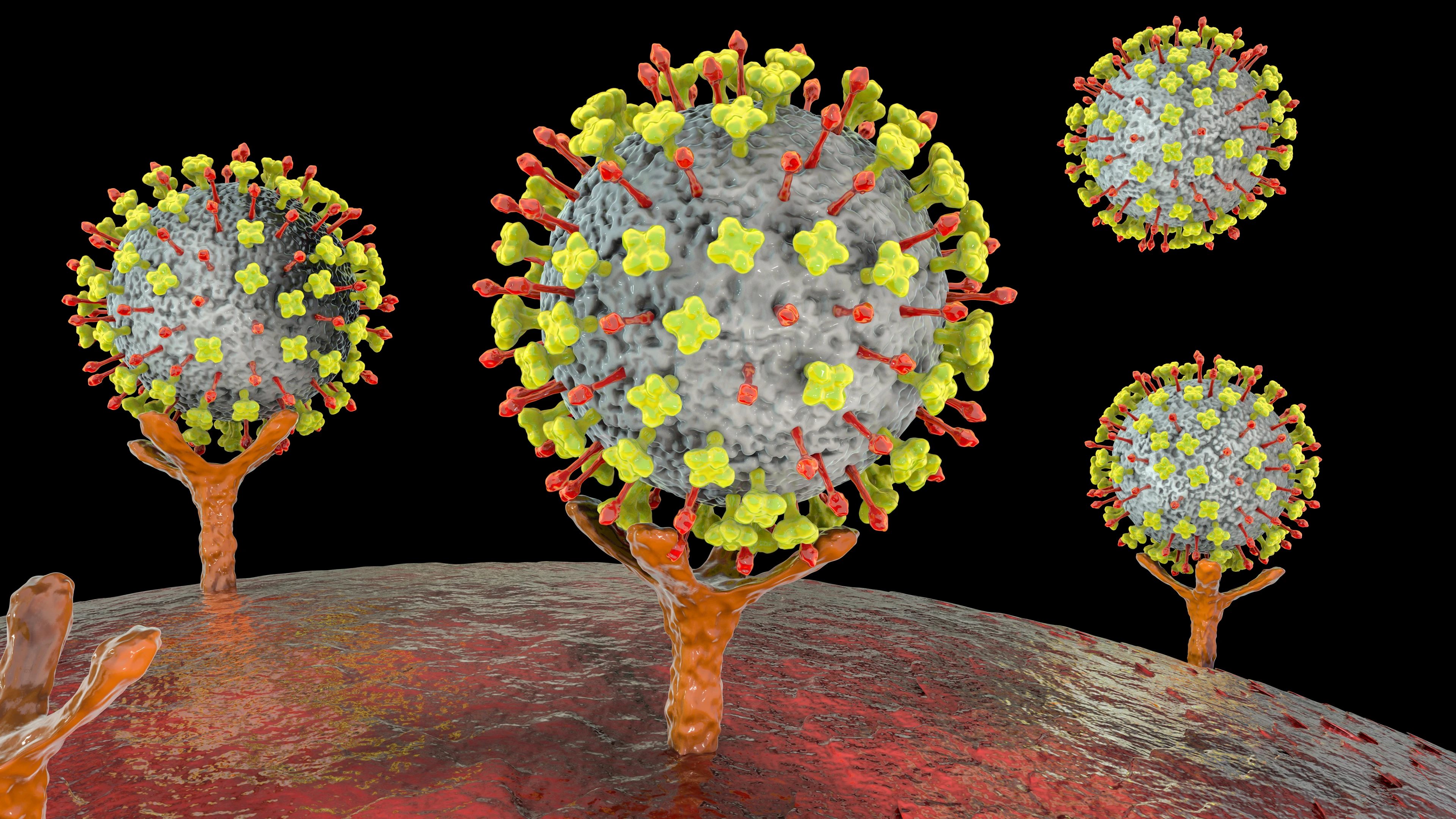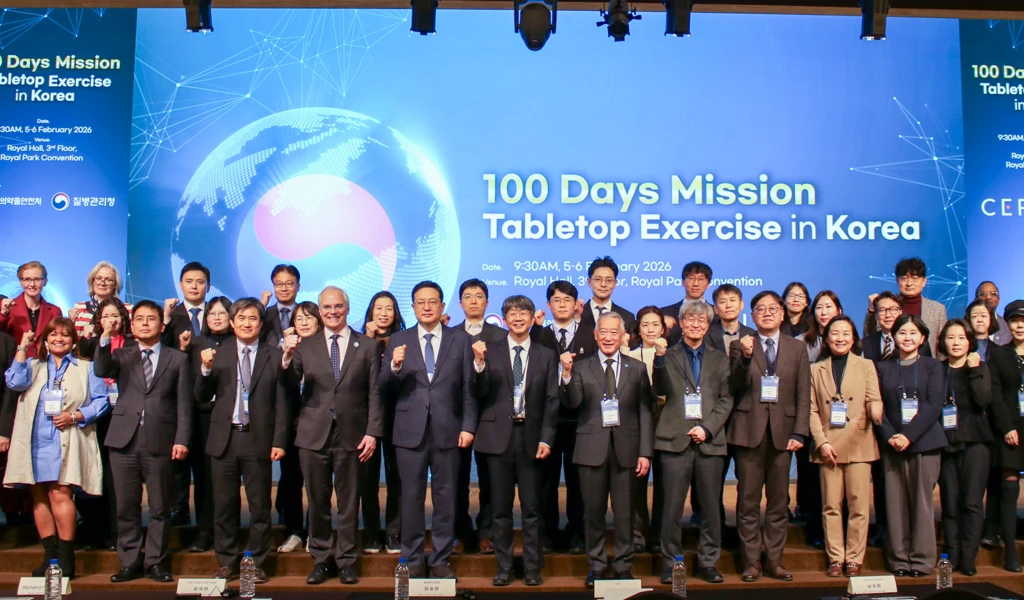New human trials for novel antibody offer hope for immediate protection against deadly Nipah

3 July 2024; OSLO; CALIFORNIA; Twenty-five years after the first human outbreak of Nipah virus, a novel Nipah monoclonal antibody—which could offer people at risk of infection immediate protection against the deadly disease—is planned to undergo human clinical trials in India and Bangladesh.
These clinical trials will assess the safety and tolerability of a Nipah monoclonal antibody (mAb), a protein that mimics natural antibodies by binding to the virus and preventing infection, which is designed to protect people in Nipah-affected countries from contracting the disease.
With $43.5 million in funding from CEPI, the human trials are intended to commence in 2025, pending regulatory approval. Led by non-profit biotechnology company ServareGMP and supported by Mapp Biopharmaceutical, the trials will assess the Nipah mAb, MBP1F5, in healthy adults at multiple clinical trial sites in India and Bangladesh—two countries that suffer Nipah outbreaks almost every year.
Funding will also support preclinical studies seeking to expand the use of the mAb from pre-exposure prophylaxis (before someone is exposed to a virus) to post-exposure prophylaxis, that is, for people shortly after infection with the virus.
Nipah virus, a zoonotic disease of the Paramyxovirus family, kills up to 75 per cent of the people it infects. Currently, there are no approved treatments or vaccines to defend against it. This Nipah mAb is currently funded through Phase 1 safety testing by the US Department of Defense (US DoD), Joint Program Executive Office for Chemical, Biological, Radiological and Nuclear Defence, under contract to Mapp. CEPI will support further clinical safety testing led by ServareGMP and Mapp upon completion of the US DoD Phase I trial.
“Anyone who is exposed to Nipah virus, such as healthcare workers and family members caring for those already infected, run a risk of contracting this highly lethal disease,” said Richard Hatchett, CEO of the Coalition for Epidemic Preparedness Innovations (CEPI). “A monoclonal antibody capable of offering immediate protection for caregivers and others at risk of infection would be an important addition to our armamentarium against Nipah virus.”
Multiple Nipah virus vaccine candidates are in early-stage development, and the hope is that one or more of these will one day be approved as safe and effective for use in at-risk populations. But it can take weeks for a vaccine-induced immune response to attain a level sufficient to prevent or reduce disease severity. During this time, newly vaccinated people remain vulnerable to infection and a Nipah virus outbreak could continue to spread, escalating epidemic risk. In the event of a Nipah outbreak, a mAb is intended to act as a bridge of protection for people at high risk of exposure or who have been exposed, with the hope that it can help contain viral spread by providing immediate immune protection upon entering the bloodstream, prior to the onset of longer-lasting vaccine-induced immunity.
Monoclonal antibodies are specifically designed to do the same job as the natural antibodies our immune systems produce to fight infection. Like naturally occurring antibodies, they work by attaching themselves to harmful pathogens, preventing them from entering the body’s cells and alerting the immune system to the threat, helping to neutralise the foreign invader.
This Nipah mAb is designed to bind to the Nipah virus F protein, preventing the virus from entering a host cell and causing infection in people. The researchers hope this mechanism will offer protection against both known strains of Nipah virus (Bangladesh and Malaysia) and its closely related viral cousin, Hendra virus, for at least six months—enough time for vaccine immunity to build.
“As an organisation formed to provide medicines for unmet needs to vulnerable populations with mission-compatible partners, ServareGMP is privileged to work with two world-class organisations in CEPI and Mapp to provide an effective monoclonal antibody to those at risk from Nipah. Equitable global access is paramount to all these organisations and this programme works toward meeting that vital goal,” said Gary Pierce, Executive Director of ServareGMP.
Dr. Brent Yamamoto, PI of the programme at Mapp added, “MBP1F5 has shown incredible potential for prevention and treatment of Nipah disease in preclinical models. Partnering with CEPI and ServareGMP allows us to make giant leaps in advancing this product for use during outbreaks.”
Through its Nipah vaccine and biologics programmes and related enabling research, CEPI is one of the world’s largest funders of Nipah virus research. Developed in conjunction with CEPI’s growing portfolio of Nipah vaccine candidates, the Nipah mAb project represents CEPI’s inaugural investment in the development of a biologic countermeasure for one of its priority pathogens.
CEPI, ServareGMP and Mapp are committed to enabling equitable access to the outputs of their partnership in line with CEPI’s Equitable Access Policy. Alongside ensuring pricing commitments for Global South countries, a reserve of mAb doses will be stored in a Nipah-affected country, helping to enable rapid availability in the event of an outbreak and accessibility for those most in need. Having an effective mAb readily available alongside vaccines during an outbreak will also help to reduce vaccine demand and, therefore, inequity.
Ultimately, it is this combination of countermeasures, vaccines and mAbs, that will help to limit the number of people infected and the number of lives claimed each year by deadly Nipah virus outbreaks—stopping a potential outbreak in its tracks.
Notes to editors
For more about the crucial role that monoclonal antibodies can play in epidemic and pandemic control, see: What are monoclonal antibodies, and what role could they play in ending a potential pandemic?
About CEPI
CEPI is an innovative partnership between public, private, philanthropic and civil organisations. Its mission is to accelerate the development of vaccines and other biologic countermeasures against epidemic and pandemic threats so they can be accessible to all people in need. CEPI has supported the development of more than 50 vaccine candidates or platform technologies against multiple known high-risk pathogens or a future Disease X. Central to CEPI’s pandemic-beating five-year plan for 2022-2026 is the ‘100 Days Mission’ to compress the time taken to develop safe, effective, globally accessible vaccines against new threats to just 100 days.
About ServareGMP
ServareGMP is a non-profit 501(c)(3) biotechnology organization. ServareGMP develops and will manufacture biologic medicines for unmet needs in low-and-moderate income countries and displaced persons settlements. ServareGMP’s targets are those that disproportionally impact the most vulnerable populations.
About Mapp Biopharmaceutical
Mapp Biopharmaceutical, Inc. (San Diego, CA) develops novel antibody drugs for the prevention and treatment of infectious disease, focusing on unmet needs in global health and biodefense.


.webp)
